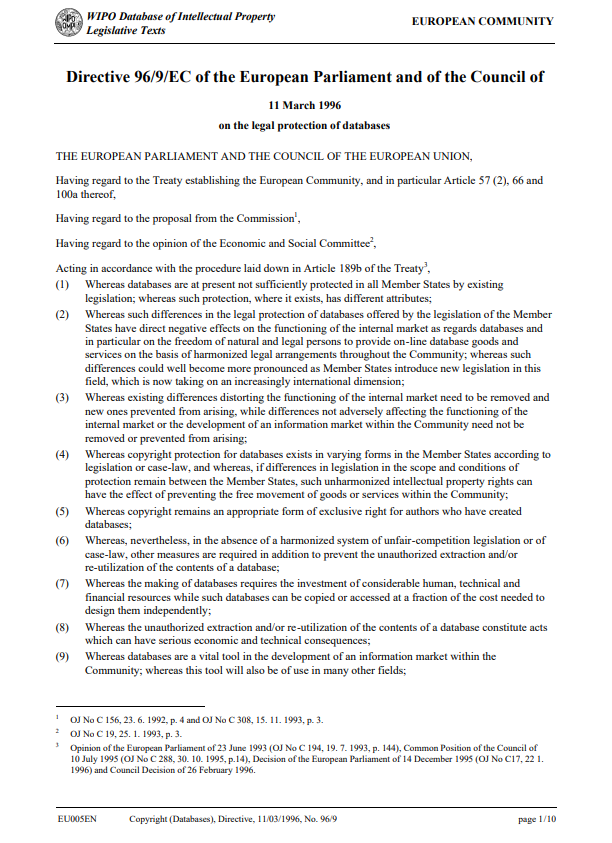Review of the first national case involving competition in encyclopedia entries: Standing at the crossroads of investment protection and data monopoly
The recent verdict of the "first nationwide competition case involving encyclopedia entry data" (hereinafter referred to as "this case") has attracted widespread attention in the industry. The case ended with BD Baike winning the lawsuit and ZJ Jump's HD Baike (referred to as "Yi Baike" in the judgment) being awarded a compensation of 8 million yuan, setting a benchmark for the legal protection of platform data collections.

The court's judgment logic clearly recognizes the enormous investment made by the platform in gathering, organizing, and presenting massive user generated content (UGC), and includes the overall "competitive rights" generated by it in the protection scope of the Anti Unfair Competition Law. However, while this ruling takes an important step towards confirming the ownership of data assets, it also profoundly reveals the inherent contradiction between data circulation and data monopoly, triggering deep thinking on the future direction of the data industry.
01. The core logic of the judgment: the judicial practice of the EU's "special rights for databases" in China
The core of the judgment in this case lies in the court's determination that although the plaintiff (BD) does not own the copyright of a single entry content, it has integrated scattered user generated content into a data collection with enormous commercial value through a series of business activities such as "collection, storage, arrangement, management, and dissemination". This data collection formed through massive resource investment (rather than intellectual creation) possesses exclusive "competitive rights" that should be protected by law.
This is highly consistent with the concept of "sui generis database right" created by the European Union in the 1996 Directive on the Legal Protection of Databases. This right does not protect the data itself, but rather protects the "substantial investment" made by database creators in "obtaining, verifying, or presenting" database content. The judgment in this case almost fully adopts this concept, which recognizes that investment itself can give rise to a right protected by competition law. This marks an important exploration of China's judicial practice in dealing with data rights issues.

02. Core controversy: Does protecting data investment necessarily lead to public welfare?
The ruling in this case raises a fundamental question, which is what should competition law prioritize in protecting?
A simple yet powerful viewpoint holds that only by effectively protecting the huge investment in the process of data formation can market entities be incentivized to create, organize, and maintain high-quality data, ultimately benefiting the public. If competitors are allowed to "move" the results for free and in bulk, it will lead to "bad money driving out good money", and no one will be willing to invest in the early stage. High quality data sources will gradually dry up. From this perspective, the court's ruling seems impeccable, as it upholds fair business ethics.
However, the ultimate goal of competition law is to maintain market order, promote innovation, and enhance consumer welfare. We must further inquire whether granting strong exclusive rights to the encyclopedia platform in the specific context of this case will necessarily have a positive impact on public welfare?
Does protection equal quality improvement?
We need to carefully consider the statement of 'protecting and promoting high-quality development'. Baike platforms (such as BD Baike in this case) are essentially aggregators and summarizers of data, rather than the original creators of the vast majority of content. Its core value lies in providing a low threshold knowledge co creation platform. Will providing strong competitive protection automatically translate into the platform investing more resources to improve the accuracy and neutrality of entries? Is it still possible for it to abuse its market position in the absence of effective external competition supervision, and even, as the wise worry, to transform the editorial power of entries into a tradable "right to fabricate facts"?
2. The cost of competition: repeated wheel making and market solidification.
The court has prohibited the defendant's "moving" behavior, which poses a dilemma for later competitors such as HD platform: either invest massive manpower and material resources to "duplicate the wheel" and build a content library that may be highly homogeneous with A platform from scratch, which is undoubtedly a huge waste of social resources; Either give up the track directly and exit the market. The result of the latter is to enable the BD platform to achieve a de facto market monopoly by leveraging its first mover advantage and data barriers.
03. The primary vigilance in the field of data: sliding from anti free riding to anti competition
In today's world where data elements have become the core productivity, the importance of preventing data hegemony and market monopoly should be given top priority.
The healthy development of the data industry should not become a carnival for a few 'big companies'. If the protection of the law ultimately evolves into a "moat" that consolidates the monopoly position of pioneers, then the innovation vitality of the entire industry will be stifled. As pointed out by keen observation, the user interface of BD Encyclopedia has hardly undergone significant iterations in the past decade, which may be seen as a side example of the weakening of innovation drive due to insufficient competition.
When a platform occupies an absolute dominant position in a certain data field, it not only masters the data itself, but also the discourse power, business model, and even the definition power of technology applications based on data. This is extremely detrimental to longer-term technological progress and the prosperity of the industrial ecosystem. Even if latecomers have superior technology and more innovative models, they may still fail due to the inability to overcome the "natural barrier" of data barriers.
04. Conclusion
The verdict of the first national case involving competition in encyclopedia entry data is undoubtedly a milestone in China's judicial protection of data property rights. It effectively regulates the blatant behavior of data "moving" and affirms the enormous commercial value that the platform has invested in building data collections.
However, we must be soberly aware that this case has also opened a Pandora's box. It has pushed the contradiction between "protecting investment" and "maintaining competition" to the forefront. While celebrating the judicial crackdown on unfair competition, we need to be more vigilant about the market monopoly risks it may objectively bring. Future legislation and judicial practice must seek a more delicate and prudent balance between protecting the legitimate inputs of data producers and preventing data monopolies, ensuring the reasonable flow of data. How to define the boundary of "substantial substitution", how to encourage the use of value-added innovation based on existing data, and how to reserve necessary development space for latecomers will be the key propositions that determine whether China's data economy can continue to develop healthily.




